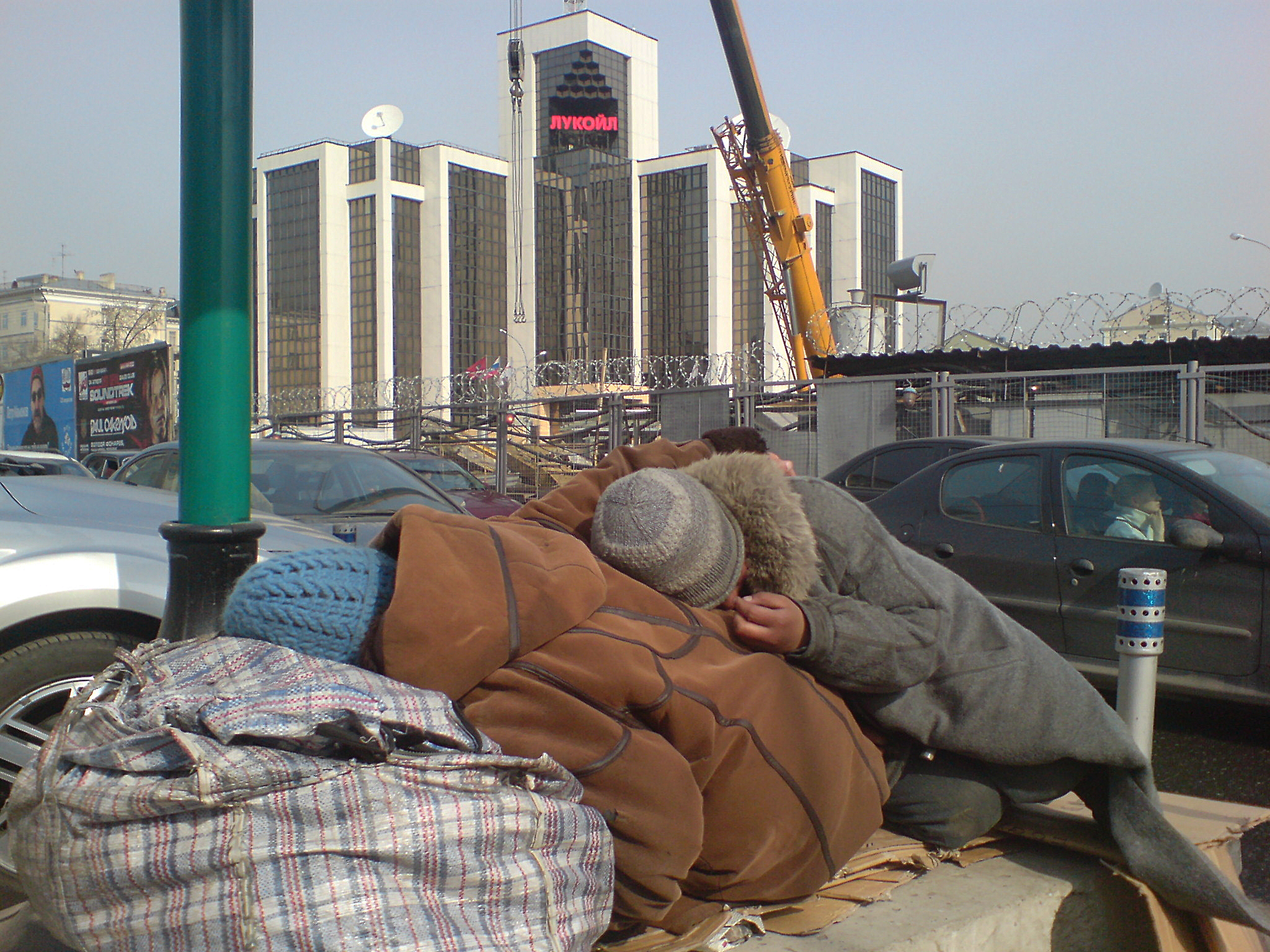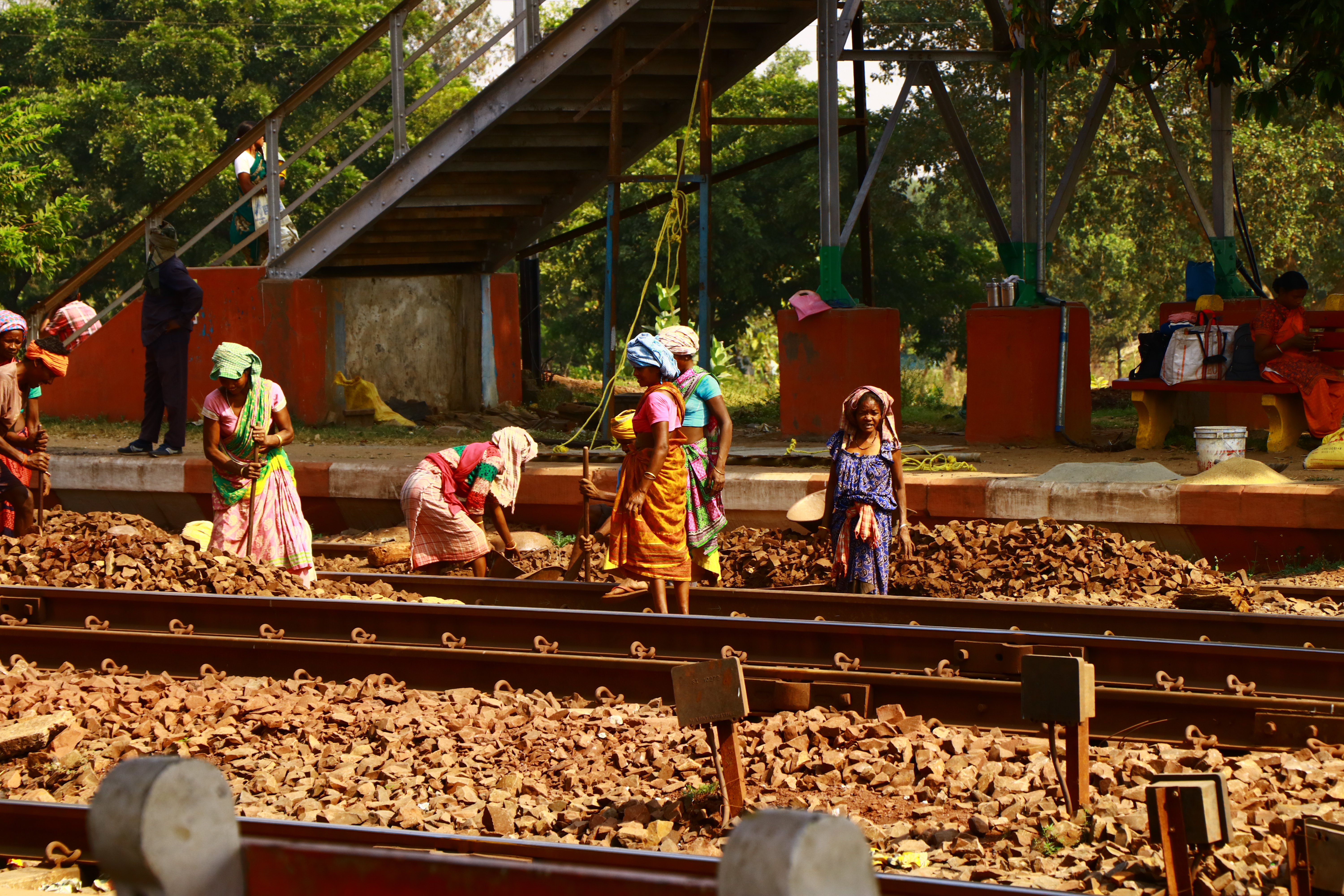|
Pauper
Pauperism (Lat. ''pauper'', poor) is poverty or generally the state of being poor, or particularly the condition of being a "pauper", i.e. receiving relief administered under the English Poor Laws. From this, pauperism can also be more generally the state of being supported at public expense, within or outside of almshouses, and still more generally, of dependence for any considerable period on charitable assistance, public or private. In this sense pauperism is to be distinguished from poverty. Under the English Poor Laws, a person to be relieved must be a destitute person, and the moment he had been relieved he became a pauper, and as such incurred certain civil disabilities. Statistics dealing with the state of pauperism in this sense convey not the amount of destitution actually prevalent, but the particulars of people in receipt of poor law relief. The 1830s brought to Europe great economic hardships. The late 19th century saw a tremendous rise in the populations of all the ... [...More Info...] [...Related Items...] OR: [Wikipedia] [Google] [Baidu] |
Workhouses
In Britain, a workhouse () was an institution where those unable to support themselves financially were offered accommodation and employment. (In Scotland, they were usually known as poorhouses.) The earliest known use of the term ''workhouse'' is from 1631, in an account by the mayor of Abingdon reporting that "we have erected wthn our borough a workhouse to set poorer people to work". The origins of the workhouse can be traced to the Statute of Cambridge 1388, which attempted to address the labour shortages following the Black Death in England by restricting the movement of labourers, and ultimately led to the state becoming responsible for the support of the poor. However, mass unemployment following the end of the Napoleonic Wars in 1815, the introduction of new technology to replace agricultural workers in particular, and a series of bad harvests, meant that by the early 1830s the established system of poor relief was proving to be unsustainable. The New Poor Law of 18 ... [...More Info...] [...Related Items...] OR: [Wikipedia] [Google] [Baidu] |
English Poor Laws
The English Poor Laws were a system of poor relief in England and Wales that developed out of the codification of late-medieval and Tudor-era laws in 1587–1598. The system continued until the modern welfare state emerged after the Second World War. English Poor Law legislation can be traced back as far as 1536, when legislation was passed to deal with the impotent poor, although there were much earlier Plantagenet laws dealing with the problems caused by vagrants and beggars. The history of the Poor Law in England and Wales is usually divided between two statutes: the Old Poor Law passed during the reign of Elizabeth I (1558–1603) and the New Poor Law, passed in 1834, which significantly modified the system of poor relief. The New Poor Law altered the system from one which was administered haphazardly at a local parish level to a highly centralised system which encouraged the large-scale development of workhouses by poor law unions. The Poor Law system fell into decline at ... [...More Info...] [...Related Items...] OR: [Wikipedia] [Google] [Baidu] |
The Prince And The Pauper
''The Prince and the Pauper'' is a novel by American author Mark Twain. It was first published in 1881 in Canada, before its 1882 publication in the United States. The novel represents Twain's first attempt at historical fiction. Set in 1547, it tells the story of two young boys who were born on the same day and are identical in appearance: Tom Canty, a pauper who lives with his abusive, alcoholic father in Offal Court off Pudding Lane in London, and Edward VI of England, son of Henry VIII of England. Plot Tom Canty, the youngest son of a very poor family living in Offal Court located in London, has been abused by his father and grandmother, but is encouraged by the local priest, who taught him to read and write. Loitering around the palace gates one day, he sees Edward Tudor, the Prince of Wales. Coming too close in his intense excitement, Tom is caught and nearly beaten by the Royal Guards. However, Edward stops them and invites Tom into his palace chamber. There, the ... [...More Info...] [...Related Items...] OR: [Wikipedia] [Google] [Baidu] |
Reserve Army Of Labour
Reserve army of labour is a concept in Karl Marx's critique of political economy Political economy is the study of how economic systems (e.g. markets and national economies) and political systems (e.g. law, institutions, government) are linked. Widely studied phenomena within the discipline are systems such as labour .... It refers to the unemployed and Underemployment, underemployed in Capitalist mode of production (Marxist theory), capitalist society. It is synonymous with "industrial reserve army" or "relative surplus population", except that the unemployed can be defined as those actually looking for work and that the relative surplus population also includes people unable to work. The use of the word "army" refers to the workers being conscripted and regimented in the workplace in a hierarchy under the Commanding heights of the economy, command or authority of the owners of Capital (economics), capital. Marx did not invent the term "reserve army of labour". It was ... [...More Info...] [...Related Items...] OR: [Wikipedia] [Google] [Baidu] |
Pauper's Funeral
In the United Kingdom, a pauper's funeral was a funeral for a pauper paid for under the Poor Law. This policy addressed the condition of the poor people of Britain, such as those living in the workhouses, where a growing population of the British ended their days from the 1850s to the 1860s. This period saw between 32 and 48 percent increase in the proportion of the elderly and the sick paupers in these institutions. An account described how poor people could not avail themselves of the funeral relief until they entered the workhouse. The common law right of the dead to a dignified burial was first recognized in England in the 1840 case ''Rex v. Stewart'', 12 AD. & E. 773. The phrase is still sometimes used, both in the UK and some Commonwealth countries, to describe a public health funeral (or equivalent service outside the UK): a basic burial paid for by the local authority when funeral arrangements cannot (or will not) be made by the family of the deceased. For instance, due ... [...More Info...] [...Related Items...] OR: [Wikipedia] [Google] [Baidu] |
Poverty
Poverty is the state of having few material possessions or little income. Poverty can have diverse social, economic, and political causes and effects. When evaluating poverty in statistics or economics there are two main measures: '''' compares income against the amount needed to meet basic personal needs, such as [...More Info...] [...Related Items...] OR: [Wikipedia] [Google] [Baidu] |
Debtors Anonymous
Debtors Anonymous (DA) is a twelve-step program for people who want to stop incurring unsecured debt. Collectively they attend more than 500 weekly meetings in fifteen countries, according to data released in 2011. Those who compulsively incur unsecured debt are said to be engaged in compulsive borrowing and are known as compulsive debtors. DA encourages careful record keeping and monitoring of finances—including purchases, income, and debt payments—to get a clear picture of spending habits. This information is used to develop healthier spending practices, supporting one in keeping a reasonable quality of life while still repaying debt. Similarly, DA recommends developing plans for the future to increase income. DA's program is intended to facilitate a progressive personality change in its members, ultimately transforming their world views and changing their behaviors. In the mid-1990s, sociologist Terrell A. Hayes conducted in-depth interviews with a convenience and snowb ... [...More Info...] [...Related Items...] OR: [Wikipedia] [Google] [Baidu] |
Working Poor
The working poor are working people whose incomes fall below a given poverty line due to low-income jobs and low familial household income. These are people who spend at least 27 weeks in a year working or looking for employment, but remain under the poverty threshold. In the US, the official measurement of the working poor is controversial. Many social scientists argue that the official measurements used do not provide a comprehensive overview of the number of working poor. One recent study proposed over 100 ways to measure this and came up with a figure that ranged between 2% and 19% of the total US population. There is also controversy surrounding ways that the working poor can be helped. Arguments range from increasing welfare to the poor on one end of the spectrum to encouraging the poor to achieve greater self-sufficiency on the other end, with most arguing varying degrees of both. Measurement Absolute According to the US Department of Labor, the working poor "are pers ... [...More Info...] [...Related Items...] OR: [Wikipedia] [Google] [Baidu] |
Social Stigma
Social stigma is the disapproval of, or discrimination against, an individual or group based on perceived characteristics that serve to distinguish them from other members of a society. Social stigmas are commonly related to culture, gender, race, socioeconomic class, age, sexual orientation, body image, physical disability, intelligence or lack thereof, and health. Some stigma may be obvious, while others are known as concealable stigmas that must be revealed through disclosure. Stigma can also be against oneself, stemming from negatively viewed personal attributes in a way that can result in a "spoiled identity" (i.e., self-stigma). Description Stigma (plural stigmas or ''stigmata'') is a Greek word that in its origins referred to a type of marking or the tattoo that was cut or burned into the skin of people with criminal records, slaves, or those seen as traitors in order to visibly identify them as supposedly blemished or morally polluted persons. These individuals were t ... [...More Info...] [...Related Items...] OR: [Wikipedia] [Google] [Baidu] |
Social Exclusion
Social exclusion or social marginalisation is the social disadvantage and relegation to the fringe of society. It is a term that has been used widely in Europe and was first used in France in the late 20th century. It is used across disciplines including education, sociology, psychology, politics and economics. Social exclusion is the process in which individuals are blocked from (or denied full access to) various rights, opportunities and resources that are normally available to members of a different group, and which are fundamental to social integration and observance of human rights within that particular group (e.g., housing, employment, healthcare, civic engagement, democratic participation, and due process). Alienation or disenfranchisement resulting from social exclusion can be connected to a person's social class, race, skin color, religious affiliation, ethnic origin, educational status, childhood relationships, living standards, and or political opinions, and a ... [...More Info...] [...Related Items...] OR: [Wikipedia] [Google] [Baidu] |
Poor Law Guardians
Boards of guardians were ''ad hoc'' authorities that administered Poor Law in the United Kingdom from 1835 to 1930. England and Wales Boards of guardians were created by the Poor Law Amendment Act 1834, replacing the parish overseers of the poor established under the old poor law, following the recommendations of the Poor Law Commission. Boards administered workhouses within a defined poor law union consisting of a group of parishes, either by order of the Poor Law Commission, or by the common consent of the parishes. Once a union was established it could not be dissolved or merged with a neighbouring union without the consent of its board. Each board was composed of guardians elected by the owners and ''bona fide'' occupiers of land liable to pay the poor rate. Depending on the value of the property held, an elector could cast from one to three votes. Electors could nominate proxies to cast their vote in their absence. Where property was held by a corporation or company, its g ... [...More Info...] [...Related Items...] OR: [Wikipedia] [Google] [Baidu] |






